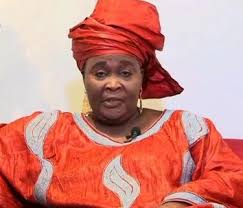Female parliamentarians have asked ECOWAS governments for 30 percent female representation in their various national parliaments to enhance development in the sub-region.
The president of the ECOWAS Female Parliamentarians Association (ECOFEPA), Woraye Sarr said this at ECOFEPA Town Hall meeting in Abuja on Friday.
The meeting, known as Rejuvenate Democracy by Giving Voice to the Young People, has as its theme “Stimulating a Regional Dynamics for Mentoring the Next Generation of Decision Makers”.
Sarr said the meeting was strategically linked to the ECOWAS Vision 2050 which described the desired future and the values of the region and the ambition it nurtured for its peoples.
The ECOFEPA president said the Supplementary Act of the ECOWAS Parliament also recognised the critical role women and youth played in nation building.
She noted the Article 18(c) of the Supplementary Act, stipulated 30 ppecent female representation which placed women in the spotlight.
She recalled the ECOFEPA inaugurated the “Think Politics” project in Nov. 2017, in Abuja to provide young political aspirants a platform for mentorship and exchanges.
She, however, said that five years later, the association recorded success stories.
Sarr said the intention was to mentor at least 10 million young people by 2030.
She further called on Civil Society Organisations and development partners to invest in youth-led activities to enable them design programmes and policies targeted to their collective needs to ease internal tensions.
Also, Ann Iyonu, Executive Director, Goodluck Jonathan Foundation, in her goodwill message, urged West African governments to prioritise women and youth representation in governance.
Iyonu said democracy could not thrive and function well if it was not inclusive.
She further said the meeting gave a voice to women and youth, and was timely.
She, however, spoke on the participation of women and youth in other countries, adding that they could play critical roles in leadership and governance.
“The imperative of maintaining women and youth in leadership to make democracy in our sub-region more meaningful cannot be overemphasised.
“Across the sub-region, we have very few women and youth participating as parliamentarians. This is not the case in other climes where the gap has progressively and significantly narrowed.
“It is instructive that West Africa, with only 15.7 percent of the average proportion of seats held by women in the national parliaments, lacks behind other regions in Africa.”
She appealed to governments for a conscious deliberate effort in changing the status quo of women and youth through education programmes that would boost their knowledge and skills.
She also said the adoption of technologies in politics would attract women and youths to participate in politics and change the narrative.
Also, in her goodwill message, Beatrice Eyong, Country Representative, United Nations Women, said young women in the sub-region often faced non-inclusion and emphasised low representation of women in politics.
Eyong said West Africa should address the significant structural barriers to women and girls that persist.
“Some of them include political parties that resist inclusion of women and young girls as leaders and candidates.
“Electoral systems and laws that make it tougher for women and men to compete on equal footing.
“Also, lack of access to financial resources to run election campaigns faced by all women, specifically young women.
“There are also harmful gender-based stereotypes and violence against women in political lines.”
She called for training institutions to train women and young girls in politics.
She also said the UN was pushing for more inclusive legal frameworks reviews to ensure no one was left behind.


